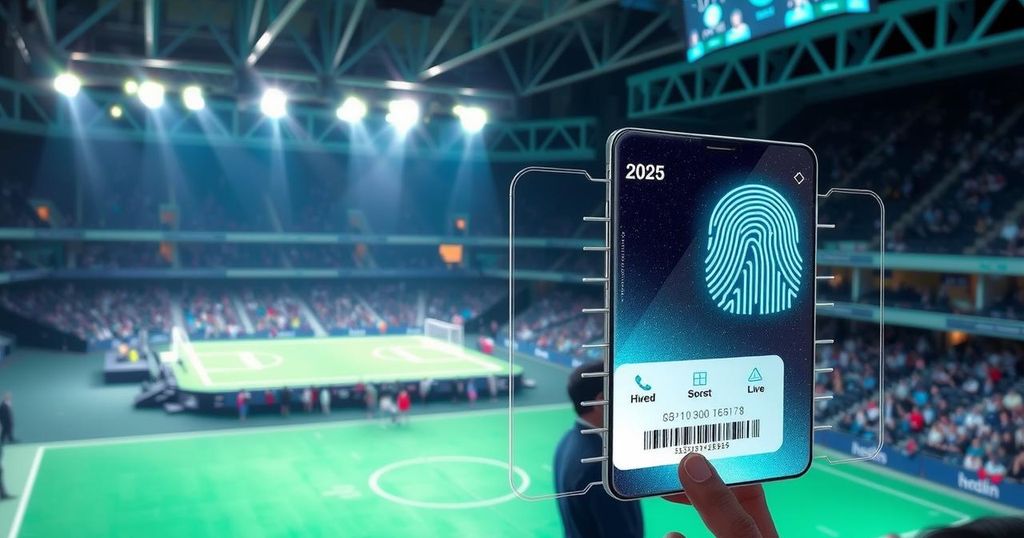Biometric ticketing for sports and live events is projected to surge by 2025, with significant implementations already observed in stadiums. Companies like Wicket and Clear are at the forefront, showcasing benefits such as reduced wait times and improved security. Despite challenges concerning costs and privacy, the potential for biometrics in enhancing the user experience is substantial, highlighted by their integration with blockchain technology and positive adoption in South American events.
The biometrics market in sports and live events is on the brink of a major expansion as we approach 2025. After 2024 saw extensive implementations of biometric ticketing technologies, including facial recognition for entry and commerce, companies like Wicket, Veridas, Clear, and NEC lead the innovation drive. The live events sector is projected to reach $754.04 billion by 2030, highlighting the increasing need for biometric solutions which 47% of venues prioritize for the upcoming year.
A report by PYMNTS emphasizes how modern ID verification technologies can revolutionize stadium access. Benefits include enhanced security and efficiency with biometric systems significantly cutting wait times by 68%, demonstrated by MLB’s ‘Go-Ahead Entry’ system. This advancement not only speeds up entry but also allows venues to process substantially more attendees compared to traditional ticket methods.
The integration of blockchain technology into ticketing is also gaining traction, with NFTs being recognized for their potential to authenticate tickets and mitigate fraud. As an example, the Golden State Warriors are exploring blockchain solutions to refine their ticketing operations. This technological evolution points towards a robust future for ticketing, emphasizing automated processes through smart contracts.
In South America, biometric implementations have proven successful, notably during the Betplay League final, which utilized 200 biometric devices for efficient identity verification. Positive feedback from officials like National Registrar Hernán Penagos marks a step toward regular use of biometrics in major events and even elections, indicating a broader acceptance.
Despite these advancements, challenges including high costs, privacy concerns, and regulatory compliance persist. The financial burden of these systems may deter smaller venues due to significant upfront investments, while public unease about data misuse remains prevalent. Additionally, upcoming regulations, such as the EU AI Act, will impose strict guidelines for the deployment of biometric technologies, compelling venues to ensure responsible usage without compromising operational effectiveness.
The integration of biometrics into ticketing systems for sports and live events represents a significant technological shift aimed at enhancing user experience and security. Biometric solutions incorporate technologies like facial recognition, fingerprint scanning, and digital identification verification to streamline entry processes and reduce fraud. With the projected growth of the global live events industry significantly increasing the demand for efficient ticketing solutions, biometrics present a timely answer to persistent challenges in line management and unauthorized ticket use.
The anticipated growth of biometric ticketing solutions in sports and live events by 2025 is driven by technological advancements, notably in identity verification and blockchain applications. Despite the promising benefits of increased efficiency and security, several barriers, including cost and privacy issues, must be addressed to ensure widespread adoption. As venues prepare to leverage these solutions, compliance with emerging regulations will be crucial to their successful implementation, ultimately transforming the event-going experience for millions.
Original Source: www.biometricupdate.com





